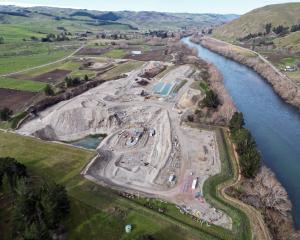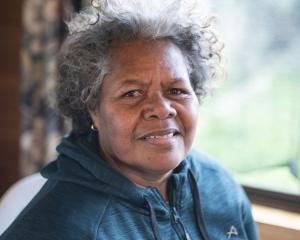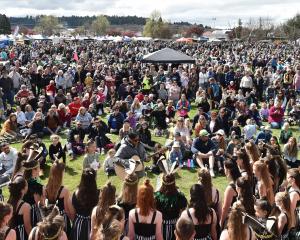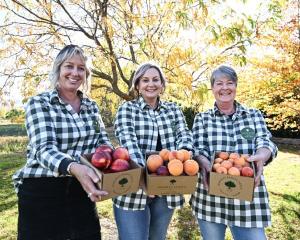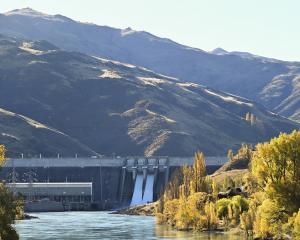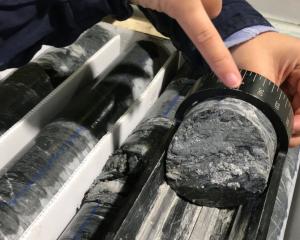Tarras Rural Fire Force deputy chief fire officer Mark Davidson admitted to the Otago Daily Times yesterday he is embarrassed.
Not only was the Upper Clutha's first big grass fire of the summer on his own farm, not enough Tarras volunteers were available to field a crew to fight the fire.
''That's something the residents of Tarras need to do a bit of navel-gazing about,'' Mr Davidson said.
''They are relying on farm workers.
''The farmers themselves are not fronting up.''
Mr Davidson was in Queenstown at the time and several Tarras volunteers were out of the district, some at the Glenorchy races.
In the end, the fire did not cause a great deal of harm, but there were some worried faces at times.
A house came under threat in the early stages, and a group of campers in caravans and tents made ready to leave their sites on the edge of the Lindis River.
The fire spread across 10-20ha of tinder-dry long grass and got within 60m of the home of former Hercules and Shortland St actor Susan Vallelunga [nee Brady] and her husband, Terence.
Mrs Vallelunga said she arrived home to be told there was a fire on the property next door.
''We look over the fence and yep, there's a fire really close to the house.''
It was moving quite quickly. The wind was ''coming and going'' and the grass ''bone dry'', she said.
The fire was accidentally started by a group of men shooting on Mr Davidson's property.
Mr Davidson said he had since spoken to the group and believed they had been firing high-calibre rifles, ''not realising the risk''.
A bullet had hit a rock and caused a spark.
''That's how little it takes.
''That's how extreme the fire risk is at the moment.''
By late on Saturday afternoon, despite the efforts of at least six fire appliances and their crews, the fire had spread downwind about a kilometre, until it was in the trees lining the north side of the low-flowing Lindis River.
With the smell of smoke in the air around their campsite on the south side, and flames approaching, a group of three families - the Brownlees, Sapsfords and Cummings, of Dunedin, Christchurch and Adelaide - hooked their five caravans to their cars ready to leave in case the flames jumped the river.
Some campers used plastic buckets to douse the flames before being joined by firefighters with hose reels.
Fortunately, the breeze driving the flames did not strengthen during the afternoon and the fire was contained on the north side.
A helicopter with a monsoon bucket arrived late in the afternoon and firefighters remained vigilant through the night.
Camper Warren Sapsford told the Otago Daily Times yesterday morning there were still a few smouldering tree stumps across the river, but the campers would remain on site, and carry on with their holiday.
Mr Davidson, who has been a firefighter for 22 years, said while the Lindis River provided some protection as a barrier, he had seen fires leap even the Clutha River.
''With the forecast wind it could flare up, and anything could happen.''
Mr Davidson said if the wind had been from a different direction on Saturday, ''I probably wouldn't have a house now''.
He is uncertain about who will pay for the firefighting but agreed the cost usually fell to the landowner.


